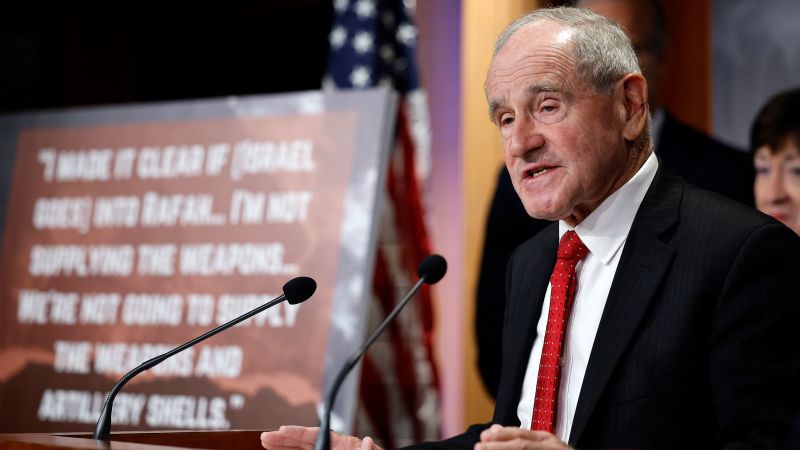Republican Sen. Jim Risch is threatening to block all action on nominees and legislation in the Senate Foreign Relations Committee until sanctions against the International Criminal Court are passed. This move comes after the ICC issued indictments against top leaders of Israel and Hamas, drawing bipartisan criticism. Despite bipartisan efforts to work on legislation regarding the ICC, progress has stalled, leading Risch to take this dramatic step in a committee known for bipartisan cooperation.
The House recently passed a bill supporting sanctions against the ICC, with the backing of 42 Democrats. Republicans are pushing for the Senate to take up the House bill to expedite the process, especially with limited legislative days before the August recess. However, Democratic Sen. Ben Cardin, who chairs the Foreign Relations Committee, has criticized the House measure as divisive and partisan. He is working to reach a deal with Republicans to pass bipartisan sanctions legislation instead. Risch and his colleagues have made offers to negotiate with Democrats, but have not seen substantive responses or progress.
Risch’s frustration with the lack of movement on ICC sanctions legislation has led him to take a hardline stance in the committee, refusing to allow meetings to take place unless the issue is addressed. Despite efforts by both Republicans and Democrats to find a bipartisan solution, disagreements over the best approach to address the ICC indictments have hindered progress. Cardin is set to discuss the standoff with Senate Majority Leader Chuck Schumer, indicating that Senate leadership is aware of the situation and potentially involved in finding a resolution.
The issue of ICC sanctions has become a major point of contention within the Senate Foreign Relations Committee, with Risch’s threat to block all action raising the stakes. Both parties recognize the importance of addressing the indictments against Israeli and Hamas leaders, but differ in their views on the most effective way to do so. Risch’s insistence on passing the House bill and Cardin’s emphasis on bipartisanship reflect broader political divisions over foreign policy and relations with international organizations like the ICC.
The standoff over ICC sanctions highlights the challenges of navigating bipartisan cooperation and contentious foreign policy issues in the current political climate. Risch’s actions underscore the frustration felt by many Republicans over the lack of progress on this issue, while Cardin’s efforts to find a bipartisan solution demonstrate the complexities of addressing sensitive international matters in a divided Congress. As discussions continue between key senators and Senate leadership, the fate of ICC sanctions legislation hangs in the balance, with potential implications for US relations with the international community and key allies like Israel.


